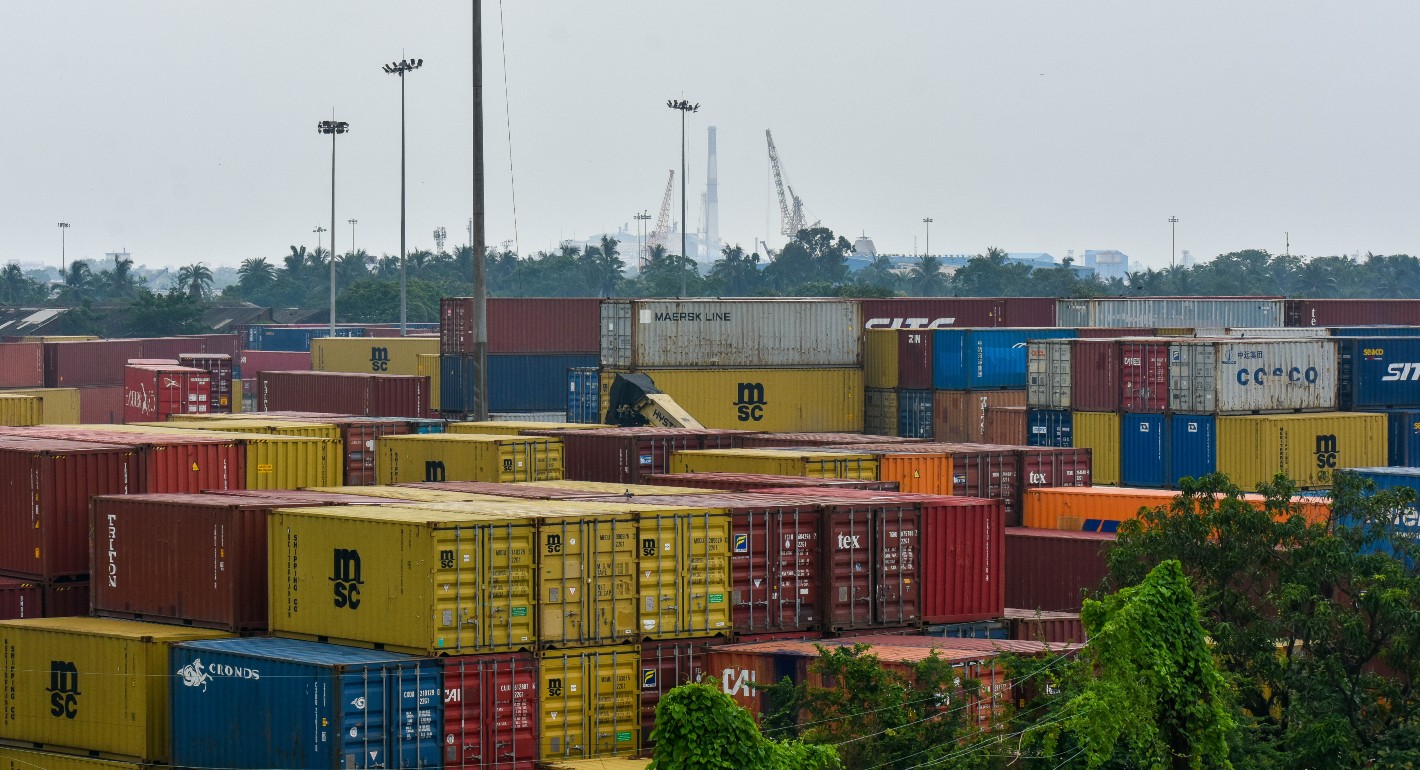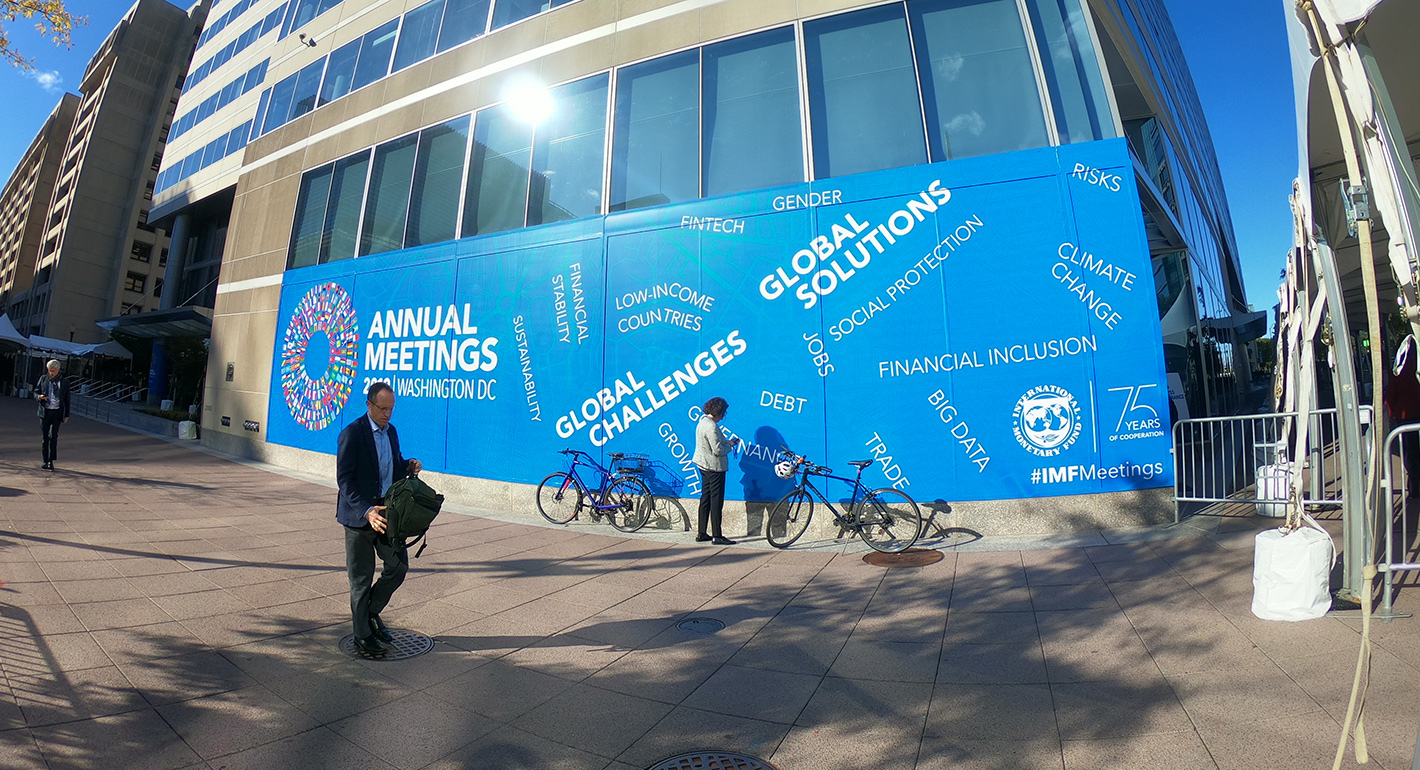- +1
Dr. Demetrios Papademetriou, Mr. John Audley, Ms. Sandra Polaski, …

REQUIRED IMAGE
New Rules in International Trade
Source: Carnegie
Entering the just-concluded World Trade Organization meeting in Doha, Qatar, U.S. negotiators faced two important, but contradictory challenges. One was to promote a free and open multilateral trading system that would promote competition and economic growth the world over. The other was to protect vulnerable domestic constituencies – farmers, steelworkers, textile manufacturers – from the ravages of the global marketplace.
For the last 50 years, the United States and other industrialized countries have been able to have their cake and eat it, too. They were able to preach the gospel of free trade and reap rising living standards as tariffs on industrial goods fell more than 90 percent worldwide. At the same time, to satisfy voters, they were able to keep up the walls of protectionism in industries such as agricultural products and apparel that developing countries rely upon to help raise them from poverty.
That era may have ended Wednesday as the WTO’s 144 member countries agreed to embark on a new round of trade negotiations. The tide, it seems, has shifted dramatically in favor of the developing world -- and not a moment too soon.
The last WTO ministerial, held in Seattle two years ago, was a complete disaster for the WTO and for the wealthy countries that hoped to launch a "millennium round" of trade negotiations. Television cameras caught the riots in the streets as protesters clashed with police in riot gear amid clouds of tear gas, and commentators dutifully remarked how civil society had become a new force in the international trade arena.
But the fact is that the Seattle ministerial didn’t fail because of the sideshow on the streets. It collapsed because of irreconcilable differences around the negotiating table. Developing countries, still smarting from the effects of the last trade round, demanded concessions that the United States and Europe were unwilling to grant because they would have been politically unacceptable at home. The meeting dissipated without the launch of a new trade round, and developing countries saw for the first time the power they wielded.
In the lead up to the Doha meeting, developing countries bristled over unmet promises by industrialized countries to increase market access for their products. They complained that they unable to take on new trade obligations because they were struggling under the burden of the trade rules enacted in 1995. And they threatened to block a new trade round unless these and other concerns were not addressed. For a long time it seemed that, absent a miracle, this ministerial would go the way of the last.
Then, two things happened. Tragedy struck on Sept. 11, and the United States saw a new round as another means of cementing its anti-terror coalition. And as the world economy moved towards recession, governments began to realize that they did not want to enter a prolonged downturn without the possibility of future trade liberalization on the agenda.
At Doha developing countries fed up with inequities in WTO rules sat down with developed countries whose economic and geopolitical insecurity demanded they launch a new round at all costs. It’s little wonder then that the U.S. and Europe gave away the store.
To the dismay of pharmaceutical companies, the United States conceded to language that may, in effect, allow poor countries to break patents on AIDS, TB and malaria drugs to combat those public health crises. Angering steel producers, it also agreed to revisit the WTO’s antidumping rules, which the US has long invoked to keep out imports of low-cost foreign steel. And violating a decades-long commitment to their small farmers, the European Union and Japan agreed to language promising that agricultural export subsidies – which make farmers in poor countries less competitive and depress world food prices – will be phased out over time.
Of course, wealthy countries won’t go home empty-handed. They did secure concessions that may eventually mainstream rules on international investment, competition and the environment into international trade policy -- but only after deliberations among countries to decide how and when these subjects should be negotiated.
Industrialized countries will have a very hard time explaining these negotiations back home. This spring, the Bush administration used antidumping rules to protect the struggling domestic steel industry from foreign competition, and now those rules are being renegotiated. The backlash will loom even larger in France, where the farm lobby carries tremendous weight going into next year’s presidential election. In the past, wealthy countries would negotiate some "wiggle room" into trade accords, in order to say one thing at the negotiating table and another to the workers at home. The spin game won’t stop with this agreement, but with a strong civil society better apprised of trade policy than ever before, it will be hard to hide behind the spin.
Wealthy countries can no longer have both free trade and domestic protection, and have clearly prioritized the former over the latter. Developing countries know they can fight their industrialized counterparts and win, and will enter the new round as equals, not subjects.
The creation of the WTO nearly seven years ago was supposed to bring some order to the international trade regime, turning it from a power-based system to a rules-based system. Now, for the first time, it won’t be only those with the power writing the rules.
About the Author
Former Senior Associate
- NAFTA's Promise and Reality: Lessons from Mexico for the HemishphereReport
- Decoding Cancun: Hard Decisions for a Development RoundOther
- +1
Mr. John Audley, George Perkovich, Ms. Sandra Polaski, …
Recent Work
More Work from Carnegie Endowment for International Peace
- Modernizing South Asia’s Borders Through Data-Driven ResearchArticle
Cargo time release studies offer a path to greater economic gains and higher trust between neighboring countries.
Nikita Singla
- The Gulf Monarchies Are Caught Between Iran’s Desperation and the U.S.’s RecklessnessCommentary
Only collective security can protect fragile economic models.
Andrew Leber
- Duqm at the Crossroads: Oman’s Strategic Port and Its Role in Vision 2040Commentary
In a volatile Middle East, the Omani port of Duqm offers stability, neutrality, and opportunity. Could this hidden port become the ultimate safe harbor for global trade?
Giorgio Cafiero, Samuel Ramani
- Beijing Doesn’t Think Like Washington—and the Iran Conflict Shows WhyCommentary
Arguing that Chinese policy is hung on alliances—with imputations of obligation—misses the point.
Evan A. Feigenbaum
- Getting Debt Sustainability Analysis Right: Eight Reforms for the Framework for Low-Income CountriesPaper
The pace of change in the global economy suggests that the IMF and World Bank could be ambitious as they review their debt sustainability framework.
C. Randall Henning









